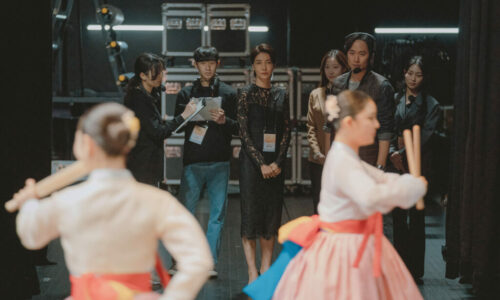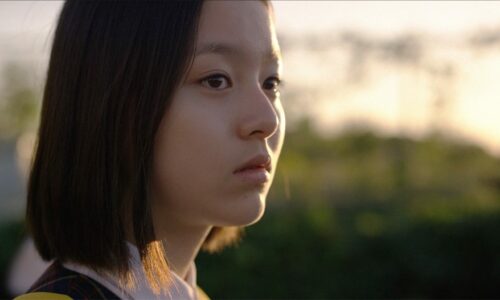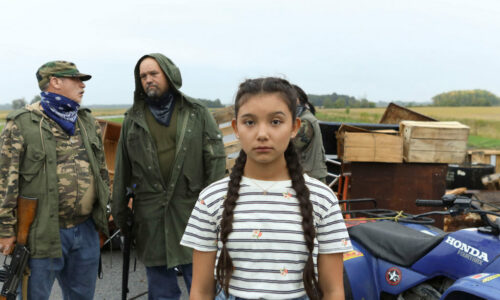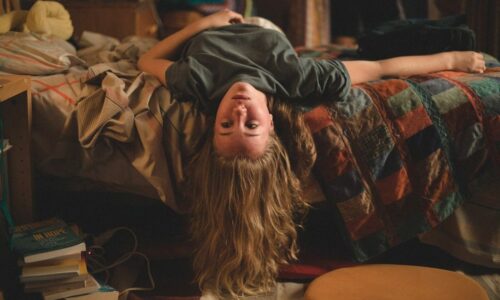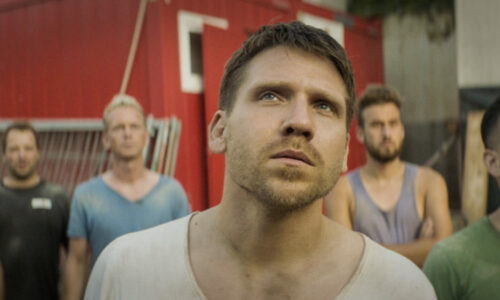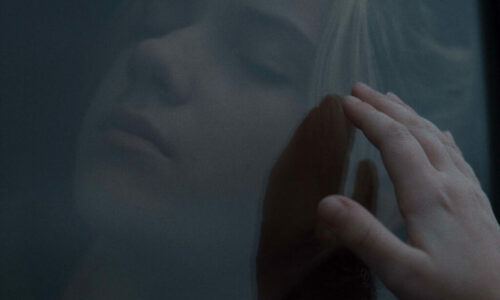Titel: Sune vs Sune
About the movie:
We are in a wide field, the camera pans past three children who are dressed in medieval clothes and are ready for a big fight. Three children pull out their swords, the youngest one suddenly holds a laser sword in his hand and the discussion between the children begins and they are interrupted only by a loud noise and trembling ground caused by a gigantic troll. Then the picture to be seen distorts in some places like a mistake in a computer game and you see a piece of real world for seconds. When the troll finally reaches them and yells at them, the whole world finally collapses and we find the four children in the middle of a playground and Sune’s father (who looks amazingly similar to the gigantic troll) is standing opposite them, trying to call the children to come home. The four children were completely submerged in their fantasy world. Sune (Elis Gerdt) and his little brother Håkan (Baxter Renman) like to disappear into these worlds and when they do, Sophie (Lily Wahlsteen), Sune’s best girlfriend, with whom he has fallen in love a little bit, is also a must. But Sophie doesn’t know anything about that, because whenever things get a little more serious, he doesn’t get any words out and tries, typical boy, to stay cool. When the path of the three separates, Sune of course has to say goodbye to Sophie and as the viewer we get all the impressions of Sune’s thoughts, which are conveyed to us in narrative form. In the end, however, it remains a farewell between the two again and they exchange short and short thoughts about the now ending summer holidays. But for the next day Sune has saved something very special for Sophie, a rare card of magic cards, which he tried to get just for her for a long time. With this special gift nothing can go wrong anymore, he thinks.
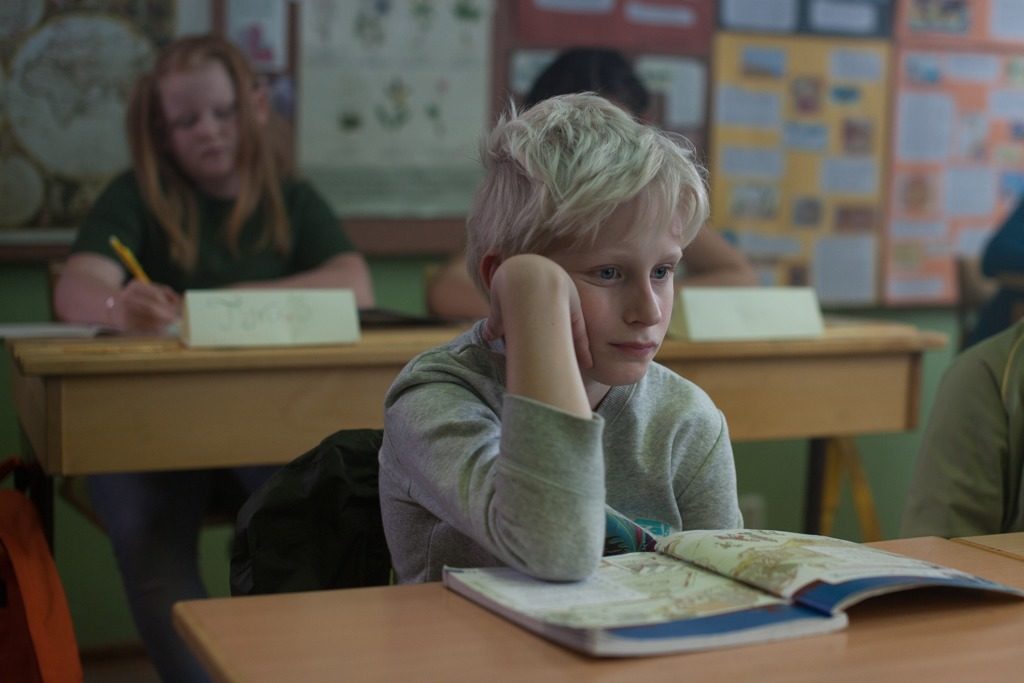
The day then begins for Sune with a new school year in a new class, at the beginning of which he arrives slightly late. The teacher greets him and asks what his name would be. When he mentions his name, the teacher is surprised and replies that she now has two Sune in the class. Even the idea of using the first letter of the last name fails quickly, as both Sune’s start with an A. The solution is then for them to simply call the late Sune Sune 2, which does not fit Sune at all into the stuff. The other Sune is after all a newcomer at school and only he is the only true Sune and why is the other Sune sitting next to his Sophie? In the course of the day, Sune also has to realize that the new Sune is also more than obviously well received by his classroom mates*. When it finally rings for the break, Sune runs outside to a table where some other children are sitting. Sune pulls out his deck of cards and wants to start, but notices in time that something is wrong. There were lots of younger children sitting at the table, but there was no trace of his friends. As he looks around the yard, he sees the other Sune telling his life story to other children and that he has recently moved here to Sweden and has been to several other countries before. Sophie also sits in the audience and Sune goes too far. He tries to take over the subject by claiming that his playing cards and the monsters associated with them are much more exciting. But Sune quickly has to realize that he won’t get very far with this strategy and that the other classmates are obviously more interested in the more mature looking new Sune than in him. But all his plans to expose the other Sune fail miserably. When it comes to a school performance for the parents, where Sune, on the advice of his sister, suggests to play Romeo and Juliet, his great love escapes him, because the leading role of Romeo is given to the new Sune. Sure, Sune tries everything to find out what’s wrong with the new Sune and together with his little brother he comes up with a plan to expose the new Sune. He just forgot that in the end he also has a conscience, which gets really intrusive.

Conclusion:
I still remember very well the past Berlinale year, where I got to see the Swedish title “Upp i det blå” (See Berlinalereport from last year) in the generation and the majority of the audience almost had tears in their eyes with laughter. Sune vs Sune follows almost seamlessly, so you could almost give the Swedes a small prize for the funniest family films at the Berlinale. All the characters make a great contribution to this original film and although there is so much nonsense going on, it doesn’t seem totally exaggerated or cramped. Especially impressive are the short scenes where the children are in their fantasy world. These are represented by quite elaborate scenery and are supported by digital animations that are quite impressive. Even the costumes look surprisingly elaborate for a children’s movie. And whenever you think, it can’t get any crazier now, something is put on top again. But the movie never loses its central theme. It’s all about friendship, the firm cohesion of the family despite some flaws and also moral aspects.
PS: If you want to train your diaphragm again at the Berlinale, you have the possibility to do so at 10am on Sunday. The film will be shown again at the House of World Cultures and there are also tickets available.
Actors:
Elis Gerdt (Sune)
John Österlund (Sune 2)
Lily Wahlsteen (Sophie)
Baxter Renman (Håkan)
Tea Stjärne (Anna)
Fredrik Hallgren (Rudolf)
Sissela Benn (Karin)
Sven Björklund (Tobbe)
Shima Niavarani (Mia)
Marie Robertson (Gabbi)
Regie:
Jon Holmberg
Information about the film incl. short film excerpt:
https://www.berlinale.de/en/programm/berlinale_programm/datenblatt.html?film_id=201911133
Pictures from the Q&A:
Unfortunately there are no pictures, because the team had already left to repeat the performance.
Trailer:
